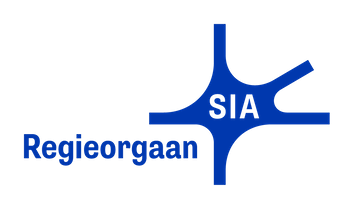Human knowledge is more than intelligence
Artificial intelligence is developing in rapid pace, yet at the core it remains a rational and automated phenomenon: it does not move, breathe, or feel like humans do. Human knowledge is therefore more than mere intelligence: it has physical, intuitive and relational aspects. Nonetheless, AI keeps finding more ways into our daily lives. And it increasingly affects our view on what knowledge is.
A field of tension
AI is still often overestimated in its ability to reproduce human experience. At the same time, we humans struggle to explicitly express our embodied knowledge, precisely because it is largely intuitive while our communication is based on language. Teach Us How to Feel investigates this field of tension: how can embodied knowledge and AI influence one another in the creative making process, and what can we learn from this about knowing, feeling and creating in artistic and design research? And how can AI and embodied knowledge collaborate in these research practices?
AI as an ‘other’
In artistic experiments, AI is not only approached as a technology, but as an ‘other’ – a partner and entity that challenges our physicality and touches upon our emotional self. For this purpose, HKU’s researchers are working with partners in the professional field as well as in education. Among them are MU Hybrid Art House in Eindhoven, a museum where contemporary art meets technology, Innovation:Lab, a platform for art, technology and science, and artists Katja Heitmann and Florian van Zandwijk are all involved in the collective research process. Also contributing to the research are HKU students from the minor Creative Research for Change (HKU Creative Transformation), the minor Artistic Immersive Experiences (HKU Media) and a new minor about AI.
'This project is the start of a collective artistic research process around a theme that is deeply affecting our society'
- Associate lector Veerle Spronck
The value of embodied knowledge
Ultimately, the project seeks to develop new creative strategies and methods for working with AI – moving beyond dominant narratives of either optimistic technological progress or visions of a dystopian future. The project ponders they question whether AI can contribute valuable knowledge and language to the creative sector, and where embodied knowledge cannot be grasped by AI. In a world where AI is gaining ground, this project prompts us to pause and reconsider the value of the human body, intuition and sensory experience in relation to this ‘other’ form of intelligence.
Solutions for complex societal challenges
The project, that is starting in December 2025 and will last for 18 months, is part of the professorship Creative Practices in Entrepreneurship in collaboration with the professorship (Dis)connected Technology & Creativity. These professorships investigate how creative makers can contribute to solutions for complex societal challenges and how technology and creativity can mutually influence each other in this.
Artistic and Design Research Scheme
The project has been awarded funding under the new Artistic and Design Research Scheme of Regieorgaan SIA and the Creative Industries Fund NL.
